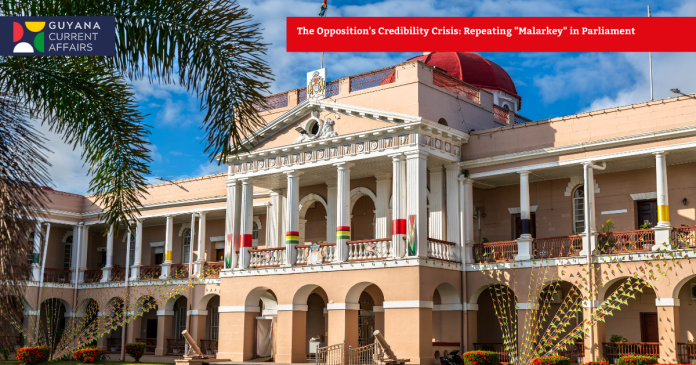Dr. Ashni Singh’s criticism of the APNU+AFC coalition’s performance in the 2025 budget debates highlights a persistent credibility crisis facing the opposition. His remarks paint a picture of an opposition that is out of touch with reality and unable to present coherent alternative policies.
Repeating “Malarkey” in Parliament
According to Dr. Singh, the APNU+AFC suffers from an “irreparable credibility deficit” that they seem unwilling to address. He accused the opposition of coming to Parliament “year after year and repeat[ing] the same malarkey,” suggesting a lack of new ideas or substantive policy proposals.
This criticism is particularly damning given the opposition’s history. Dr. Singh pointed out that after spending 23 years in opposition and finally having an opportunity in government, the APNU+AFC “wasted no time showing the people of Guyana why they were unworthy of being in government”.
Disconnect from Reality
Dr. Singh argued that the opposition is “so far removed from the realities of the people of Guyana,” which renders them incapable of effectively leading the country. This disconnect was exemplified by what Dr. Singh called absurd commitments, such as the Opposition Leader’s claim that his administration would bridge the Essequibo River at multiple points.
Lack of Coherent Alternative Policies
The criticism extends beyond mere rhetoric to the substance of the opposition’s policy proposals. Dr. Singh’s comments suggest that the APNU+AFC has failed to present a coherent and fiscally responsible alternative to the government’s budget.
This view is supported by independent analysis of the APNU+AFC’s alternative budget proposals, which have been described as “audaciously fallacious” and “fiscally unsustainable”. The opposition’s inability to provide realistic policy alternatives further erodes their credibility as a potential governing party.
Historical Context
Dr. Singh drew attention to the historical legacy of the People’s National Congress (PNC), a major component of the APNU+AFC coalition. He cited newspaper articles from the late 1980s during the PNC’s tenure in office, which recorded a period of “civil unrest, heavy taxation and the resulting onerous struggles of the ordinary man”.
This historical context serves to reinforce Dr. Singh’s argument that the opposition’s current behavior is consistent with their past performance in government, further undermining their credibility.
Conclusion
Dr. Singh’s criticism paints a picture of an opposition that is stuck in the past, unable to offer credible alternatives, and disconnected from the realities of modern Guyana. This credibility crisis, if not addressed, may continue to hamper the APNU+AFC’s ability to effectively challenge the government and present themselves as a viable alternative to the electorate.


